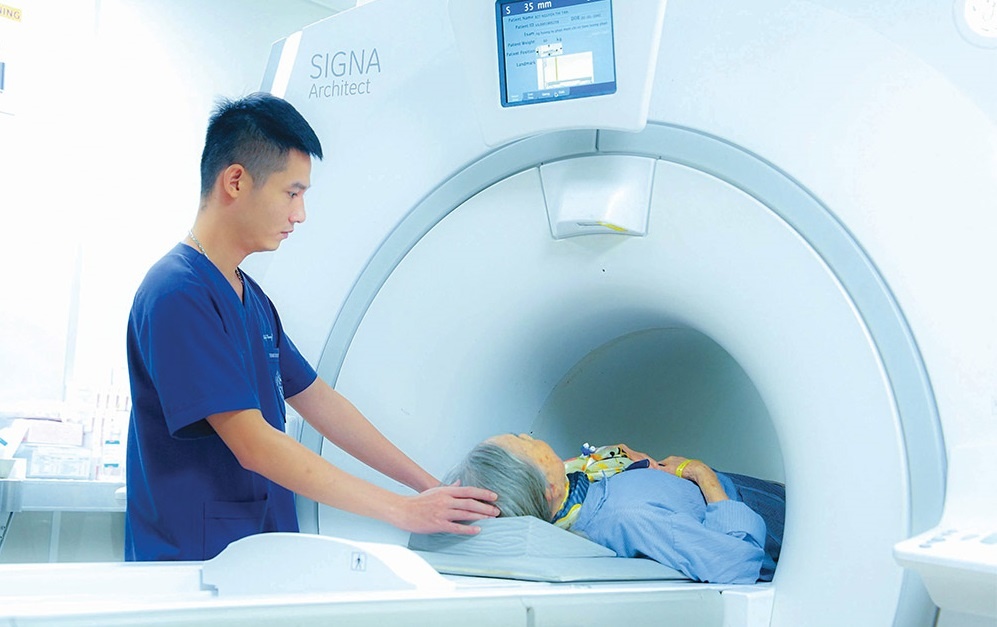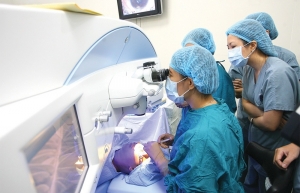Capital law expands healthcare prospects
The Vietnamese capital is considered the largest medical centre in the country, with a network of specialised hospitals managed by the Ministry of Health (MoH). They include four general hospitals and 15 specialised hospitals, while there are also hospitals under universities and academies.
 |
| Phan Le Thu Hang, deputy director, Department of Planning and Finance Ministry of Health |
In the overall national health system, central hospitals managed by the MoH play a significant role, especially in providing end-line health services to people across the country, directing and providing technical support to lower-level ones, supporting the development of local health systems, especially in disadvantaged areas, and developing specialised technical services.
These hospitals also act as model practice centres, helping the MoH develop regulations on technical expertise, criteria, standards, and norms in exam and treatment, while developing technical and economic norms as a basis for determining prices for such services.
They also coordinate to ensure health security at a time when the risk of emerging diseases and outbreaks is increasing, and when the number of provincial administrative units is large while their capacity is uneven, and the capacity to connect among provinces is still modest.
In addition, these hospitals also support specialised training and provide specialised practice for key national health universities nationwide.
Another essential point in the amended law is the expansion of priority for a number of areas of the health system that are assessed to be able to bring practical benefits to the work of caring for, protecting, and improving health, but have not received proper attention in the past.
Accordingly, the law develops the family-medicine examination and treatment network and the out-of-hospital emergency system. This development priority does not stop at determining the general orientation but specifically determines the development support strategy for both aspects, including service supply (investment support, administrative procedures, and human resource development), service demand (using local budgets to pay for family health services that are not covered by insurance), and using local budgets to support payment for out-of-hospital emergency services.
 |
| Development priorities determine strategies for exam and treatment as well as out-of-hospital services, photo Le Toan |
These are also the priority contents that the MoH has identified in the strategy for protecting and improving health as well as the strategy for innovating the grassroots health network. And Hanoi, with its revised planning, is expected to take the lead in implementing them.
During the process of developing and appraising the amended Law on Capital City, law-making experts, National Assembly deputies, leaders of Hanoi, and relevant authorities took a cautious and objective assessment perspective, placing the development of the capital’s healthcare system alongside the overall development of the country, while fully supporting the MoH’s viewpoint on developing central-level hospitals there.
The leaders of the MoH are also very aware of the importance of the network of central-level hospitals in the national healthcare system, and have a strategy to develop this network according to the orientation determined in the healthcare facility network planning for this decade and beyond.
The MoH will closely coordinate with the government and people of Hanoi to effectively implement the work of caring for, protecting, and improving people’s health in line with the directions in the amended law, in which special attention is paid to mutual and effective support between central hospitals managed by the ministry, and medical facilities managed by Hanoi authorities.
 | Digital transformation in healthcare is a long journey Digital transformation is enhancing performance across various industries, with advancements such as the commercialisation of 5G expected to bring significant benefits to the healthcare sector and its patients. |
 | Strategic actions for digital healthcare gain Vietnam’s healthcare sector is making efforts to adopt innovations. Le Minh Sang, senior health specialist at the World Bank Vietnam Office, provides an analysis on how to foster an enabling environment for health innovations. |
 | Growing AI applications now prevalent in healthcare AI is now getting increasing attention and more investment in research, with AI application success in many fields, including healthcare. |
What the stars mean:
★ Poor ★ ★ Promising ★★★ Good ★★★★ Very good ★★★★★ Exceptional
Related Contents
Latest News
More News
- State corporations poised to drive 2026 growth (February 03, 2026 | 13:58)
- Why high-tech talent will define Vietnam’s growth (February 02, 2026 | 10:47)
- FMCG resilience amid varying storms (February 02, 2026 | 10:00)
- Customs reforms strengthen business confidence, support trade growth (February 01, 2026 | 08:20)
- Vietnam and US to launch sixth trade negotiation round (January 30, 2026 | 15:19)
- Digital publishing emerges as key growth driver in Vietnam (January 30, 2026 | 10:59)
- EVN signs key contract for Tri An hydropower expansion (January 30, 2026 | 10:57)
- Vietnam to lead trade growth in ASEAN (January 29, 2026 | 15:08)
- Carlsberg Vietnam delivers Lunar New Year support in central region (January 28, 2026 | 17:19)
- TikTok penalised $35,000 in Vietnam for consumer protection violations (January 28, 2026 | 17:15)

 Tag:
Tag:


















 Mobile Version
Mobile Version